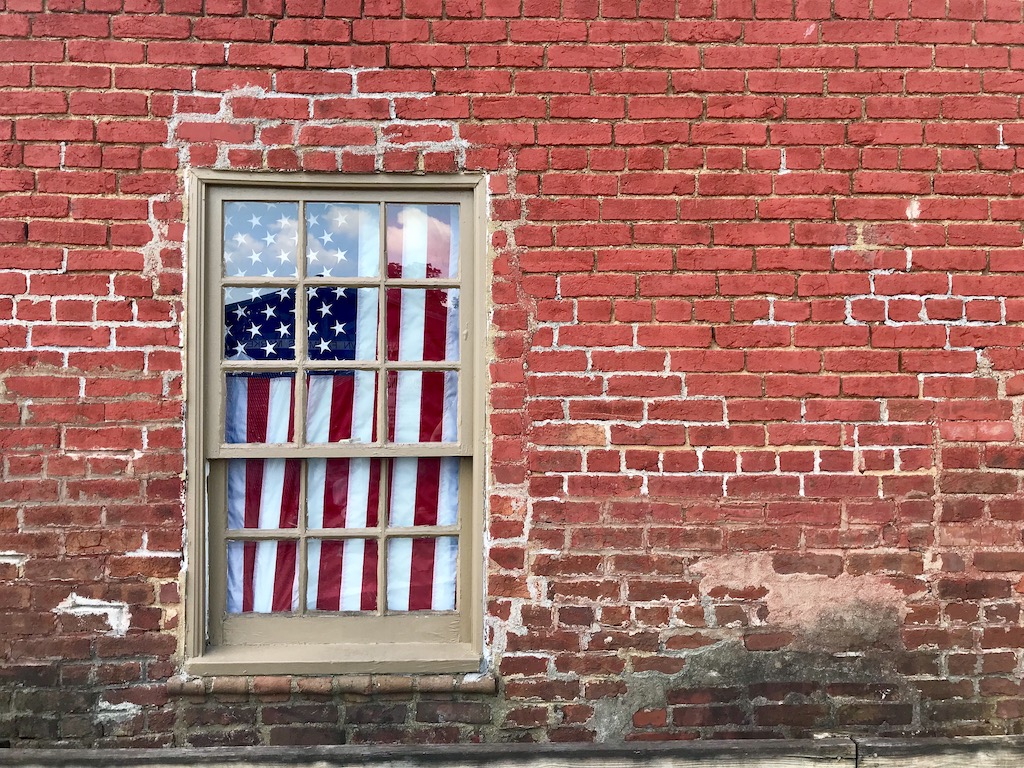I have already provided some thoughts on Charles Murray’s new book, “Coming Apart: The State of White America, 1960-2010,” related to the broader implications of his argument that our country is experiencing an “inequality of human dignity.”
In explaining why this inequality has developed, Murray notes that we have drifted from our country’s “founding virtues”—industriousness, honesty, marriage and religiosity. Thus far, Murray argues, these virtues have supported the American project, propelling it to its position of unprecedented stability and prosperity. Yet these same virtues are now eroding, especially among the new lower class (thus the divide).
 Murray reflects on each of these virtues at length, but as it pertains to the emphases here at Values & Capitalism, it seems most fitting to explore the role that industriousness, or lack thereof, has played in this development. Industriousness is perhaps the most distinctly American of these features (or was at the time of the founding). As Murray writes, “If just one American virtue may be said to be defining, industriousness is probably it.”
First, we’d do well to observe the way attitudes were. Here’s one snapshot, as observed by European observer Francis Grund, circa 1837:
Murray reflects on each of these virtues at length, but as it pertains to the emphases here at Values & Capitalism, it seems most fitting to explore the role that industriousness, or lack thereof, has played in this development. Industriousness is perhaps the most distinctly American of these features (or was at the time of the founding). As Murray writes, “If just one American virtue may be said to be defining, industriousness is probably it.”
First, we’d do well to observe the way attitudes were. Here’s one snapshot, as observed by European observer Francis Grund, circa 1837:
* Murray focuses specifically on white Americans, for the following reason: “I specify white, meaning non-Latino white, as a way of clarifying how broad and deep the cultural divisions in the U.S. have become. Cultural inequality is not grounded in race or ethnicity. I specify ages 30 to 49—what I call prime-age adults—to make it clear that these trends are not explained by changes in the ages of marriage or retirement.”
 Murray reflects on each of these virtues at length, but as it pertains to the emphases here at Values & Capitalism, it seems most fitting to explore the role that industriousness, or lack thereof, has played in this development. Industriousness is perhaps the most distinctly American of these features (or was at the time of the founding). As Murray writes, “If just one American virtue may be said to be defining, industriousness is probably it.”
First, we’d do well to observe the way attitudes were. Here’s one snapshot, as observed by European observer Francis Grund, circa 1837:
Murray reflects on each of these virtues at length, but as it pertains to the emphases here at Values & Capitalism, it seems most fitting to explore the role that industriousness, or lack thereof, has played in this development. Industriousness is perhaps the most distinctly American of these features (or was at the time of the founding). As Murray writes, “If just one American virtue may be said to be defining, industriousness is probably it.”
First, we’d do well to observe the way attitudes were. Here’s one snapshot, as observed by European observer Francis Grund, circa 1837:
Active occupation is not only the principal source of [the Americans’] happiness, and the foundation of their natural greatness, but they are absolutely wretched about it… [It] is the very soul of an American; he pursues it, not as a means of procuring for himself and his family the necessary comforts of life, but as the foundation of all human felicity.Here’s another, this time from American writer Henry Adams, circa 1889:
Reversing the old-world system, the American stimulant increased in energy as it reached the lowest and most ignorant class, dragging and whirling them upward as in the blast of a furnace. The penniless and homeless Scotch or Irish immigrant was caught and consumed by it; for every stroke of the axe and the hoe made him a capitalist, and made gentlemen of his children… The instinct of activity, once created, seemed heritable and permanent in the race.Still need persuading? Tocqueville is your friend. To provide firmer evidence of industriousness as a historic American virtue, Murray points to a study conducted by the General Social Survey, beginning in 1973, wherein participants were given cards asking the following question: “Would you please look at this card and tell me which one thing on this list would you prefer in a job?” The choices were as follows:
- High income
- No danger of being fired
- Chances for advancement
- Working hours are short; lots of free time
- Work important and gives a feeling of accomplishment
In 2006, the GSS resurrected the question, and the results were startling. The 58 percent that had always voted first place to work that “gives a feeling of accomplishment” was down to 43 percent. First-place votes for short working hours more than doubled to 9 percent. “No danger of being fired” doubled to 12 percent, with another 13 percent ranking it in second place… …it looks as if during the last half of the 1990s and the first half of the 2000s, whites by their own testimony became less interested in meaningful work and more interested in secure jobs with short working hours. Furthermore, these trends applied to both Belmont and Fishtown.”As Murray goes on to note, the actions of the lower middle class largely correspond with these attitudes, from rises in physical disability benefits applications to decreases in labor force participation to decreases in hours worked per week. (The upper middle class remains oddly unchanged in practice, despite similar attitudes about work.) The data affirm what many of us already know, and what I’ve made a habit of regurgitating in this space time and time again: Americans have shifted away from an energetic, purpose-driven, higher-order pursuit of value, and are instead moving toward security, insulationism, materialism and minimum-commitment thinking. Rather than building upon our history of sacrificial innovation and difficult labor, regardless of immediate or tangible personal benefits, many Americans are seizing our economic prosperity as an opportunity to slack off and opt for personal leisure, short-sighted consumerism and near-boastful protectionism. If Murray’s data don’t persuade you, look no further than our country’s lackadaisical response to our debt crisis and our salivating over the pandering promises of our politicians. We yearn to be shielded from competition and globalization, nitpicking over which candidate offshored how many jobs to where. We want to be promised a retirement that no longer exists, and one that will never exist without a painful departure from the status quo. We want the government to do all of our risk-taking and weighty decision-making on our behalf, whether in entrepreneurship, health care, housing or charity. We want to be told that less will be expected of us, not more. Rather than recognizing and embracing our basic human need to experience earned success, we are becoming more focused on simply putting in our 40 and demanding the stars in return. This shift in our attitudes about work—this decline in our culture of industriousness—is only one factor in this emerging cultural divide, but its corrosive cultural effects have no discernable limitations. We must return to that attitude that Francis Grund once described, pursuing “active occupation” in all things—not as a means of procuring material goods and comforts for ourselves, but “as the foundation of all human felicity.”
* Murray focuses specifically on white Americans, for the following reason: “I specify white, meaning non-Latino white, as a way of clarifying how broad and deep the cultural divisions in the U.S. have become. Cultural inequality is not grounded in race or ethnicity. I specify ages 30 to 49—what I call prime-age adults—to make it clear that these trends are not explained by changes in the ages of marriage or retirement.”



